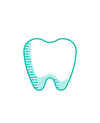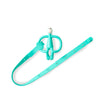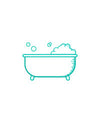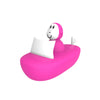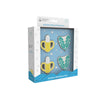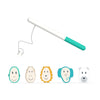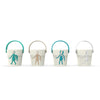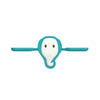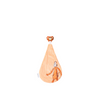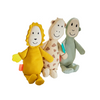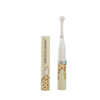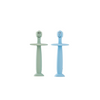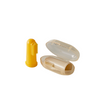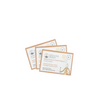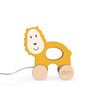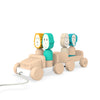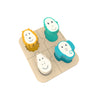Baby’s First Teeth
The developments occurring in infants in their first year of life are huge, with almost everything being either a brand new experience or a milestone, and one of the biggest of these is new teeth! Teething can be a daunting process, but knowing what to expect as the first few teeth start coming through can help to set you up for an easier time throughout the teething period. Read on to find the answers to frequent teething questions and be better prepared to tackle them head on!
When does teething start?
New teeth can start appearing from as early as 3 months, or as late as over a year, but the average is at about 6 months. Every child develops at a different rate, so you needn’t be too concerned if there are still no signs of new teeth within the first year!
How long will it last?
The overall process of cutting a full set of new teeth can take up to 2-3 years, but that doesn’t mean that your child will be in constant discomfort. Teeth don’t come in all at once, usually appearing in pairs, and each individual tooth will only cause discomfort for a few days.
What are the symptoms of teething?
Before you see signs of the first tooth coming through, it might be unclear what the teething process looks like at the beginning. Look out for the following symptoms, which are likely to indicate that your child is starting to erupt new teeth:
- An increase of biting, sucking, or chewing
- Excessive drooling
- Pulling on ears or the face
- Red, swollen gums
- Flushed cheeks
- Disturbed sleep
Though these symptoms are typically found when teething, they can also indicate other issues - look out for fevers, runny noses, and diarrhea, which are not present in teething, and contact your healthcare practitioner if you are concerned.
How can I help ease discomfort?
There are many tips and tricks to help your baby when they’re in distress from teething, and the most popular is to give them a teether to gnaw on. Check out our full range of teethers and teething products, suitable for all stages of teething. If you are struggling to get your baby to sleep at night due to teething pains, check out our blog on how to help babies sleep soundly during teething here.
When should I start brushing my baby’s teeth?
Tooth decay affects children of all ages, so it’s important to start caring for teeth as soon as they appear. Children below the age of 2 don’t yet need to use toothpaste, but a high quality finger brush can help to rub new teeth and gums with water to ensure they’re properly clean. Check out our Teething Starter Sets, comprising two different types of teether for your baby to try, as well as silicone finger toothbrushes to keep their teeth clean and healthy.

